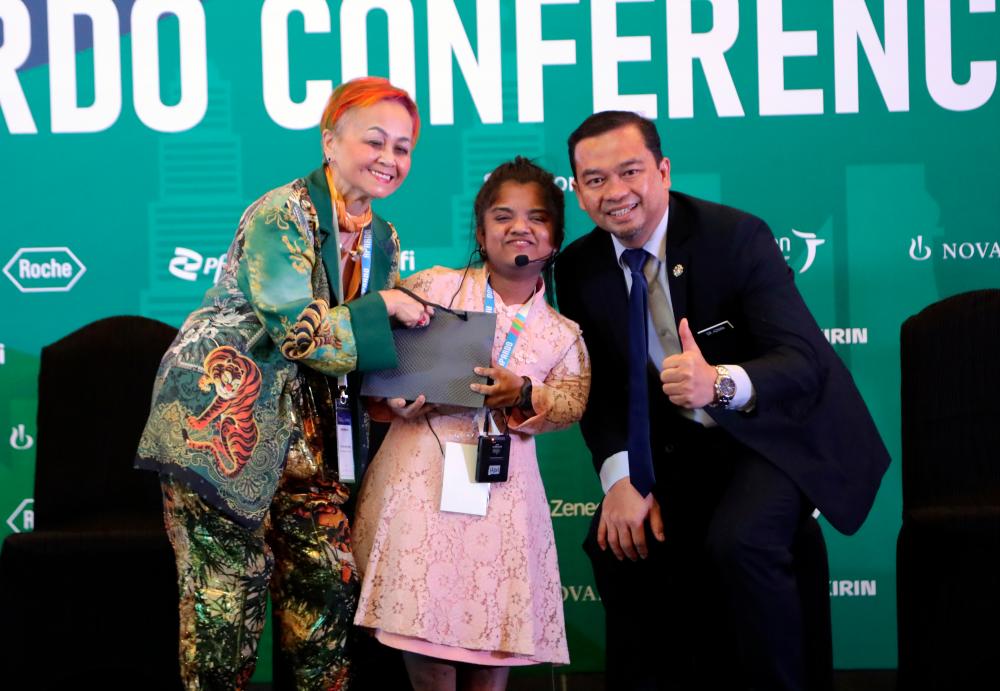PETALING JAYA: Divina Mohanakrishnan was born with a rare disorder and could only walk at age nine after a series of painful operations.
She also had a several other physical issues, including a rare condition called achondroplasia, or dwarfism.
Divina, 27, faces a lifetime of corrective surgeries to enable her to live a normal life and although employed, she said the medical bills were a burden as her rare condition is not covered by her insurance policy.
“I do my best to lead a normal life but the nature of my condition causes me great pain and in January, I will be undergoing surgery on my spine. The doctors have advised me that it is necessary (to correct a problem affecting) the nerves (near) my spine,” said Divina, who scored 9As in her SPM exams but could not qualify for a government scholarship to pursue her chosen field.
However, she managed to secure a place at Oxford Brookes University in the UK to continue studying law through financial support from her parents, graduating with an upper second class degree and today works at a law firm as a paralegal.
“I need to work to pay for my surgeries and between jobs, there is no salary and I need to fall back on my savings. There is no government scheme that provides me any financial support and it is difficult to live an independent life under such circumstances.”
Divina was one of the participants at the recent Asia Pacific Alliance for Rare Disease Organisations (Apardo) Conference, that was held for the first time in Kuala Lumpur.
The event saw Apardo joining forces with the Malaysian Rare Disorders Society for the two day conference, which brought together 150 delegates from 13 countries across the Asia Pacific region, representing 35 different rare disease groups.
Many parents and caregivers shared their experience on the challenges they faced with their children, who were born with rare disorders.
Malaysian Rare Disorders Society president Nadiah Abdul Latif said: “While much has been done, there is still a lot more to do to change public perception and move plans and frameworks into action.
“We need to challenge current perceptions and instead view the subject of rare diseases
as an opportunity and an investment to the health and socio-economy of the country and the region. The time to make a difference is now and with the spirit of ‘gotong-royong’,
we can ensure no one is left behind in the pursuit of better health outcomes for all.”
Among the participants were individuals living with rare diseases and their families, patient support group leaders, representatives from the Health Ministry and its agencies, think tanks, academia, healthcare professionals, allied health professionals and NGOs.









